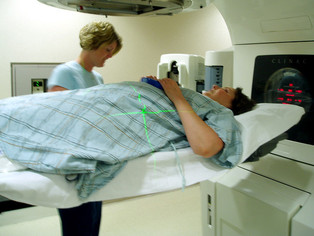Can You Cause Natural Healing Of Cancer?
By: Dr Laurence Magne
What is healing really? How can you tell whether the pill or the surgery really healed you?
Doctors claim that their drugs healed you, yet in all cases, it is only you who has healed your body. Rarely do the pills, the knife, the chemotherapy or the radiation have a real influence on the course of disease. There are good reasons for this:
1. The disease may have run its natural course.
Many diseases are self-limiting -- providing the condition is not chronic or fatal, the body's own recuperative processes usually restore the sufferer to health. Thus, before a therapy can be acknowledged as curative, its proponents must show that the number of patients listed as improved exceeds the proportion expected to recover without any treatment at all (or that they recover reliably faster than if left untreated). Unless a medical practitioner releases detailed records of his successes and failures over a sufficiently large number of patients with the same complaint, he or she cannot claim to have exceeded the norms for unaided recovery. You might be surprised to know for instance that most cancer therapies are not tested on enough patients as they are released to come up with any conclusive evidence that they are effective.
2. Many diseases are cyclical.
Arthritis, multiple sclerosis, allergies, and gastrointestinal complaints are examples of diseases that normally "have their ups and downs." Naturally, sufferers tend to seek therapy during the downturn of any given cycle. Any type of treatment received at such time will have repeated opportunities to coincide with upturns that would have happened anyway. Again, in the absence of appropriate control groups, consumers and vendors alike are prone to misinterpret improvement due to normal cyclical variation as a valid therapeutic effect.
3. Spontaneous healing.
Reported cures can be due to "spontaneous remissions." Even with cancers that are nearly always lethal, tumors occasionally disappear without further treatment.
The exact mechanisms responsible for spontaneous healing are not well understood, but much research is being devoted to revealing and possibly harnessing processes in the immune systemWhile research has confirmed that such effects exist, it must be remembered that they are fairly small, accounting for perhaps a few percent of the variance in disease statistics.
4. The placebo effect.
A major reason remedies are credited with improvements is the placebo effect. The history of medicine is full of examples from a change in symptoms to a combination of suggestion, belief, expectancy. Some placebo responses produce actual changes in the physical condition.
5. Some cured symptoms are psychosomatic to begin with.
A constant difficulty in trying to measure therapeutic effectiveness is that many physical complaints can both arise from psychosocial distress and be alleviated by support and reassurance. These symptoms resemble those of recognized medical syndromes.
6. Symptomatic relief versus cure.
Short of an outright cure, alleviating pain and discomfort is what sick people value most. Many allegedly curative treatments offered by alternative practitioners, while unable to affect the disease process itself, do make the illness more bearable, but for psychological reasons. Suffering can often be reduced by psychological means, even if the underlying pathology is untouched.
7. Many consumers of alternative therapies hedge their bets.
Healers have begun to refer to themselves as "complementary" rather than "alternative." They have begun to advertise that they can enhance conventional biomedical treatments.
8. Misdiagnosis (by self or by a physician).
In this era of media obsession with health, many people can be induced to think they have diseases they do not have. When these healthy folk receive the oddly unwelcome news from orthodox physicians that they have no organic signs of disease, they often gravitate to alternative practitioners who can almost always find some kind of "imbalance" to treat. If "recovery" follows, another convert is born.
9. Side benefits.
If an enthusiastic, upbeat healer manages to elevate the patient's mood and expectations, this optimism can lead to greater effectiveness of any treatments may also be receiving. This can motivate people to eat and sleep better and to exercise and socialize more.
10. Distortion of reality.
Many therapies help maintain self-esteem and smooth social functioning. A feeling that one's symptoms have improved could be due to a number of characteristics found in any therapeutic setting.
About the Author: Dr Magne is an expert in spontaneous remission. Why don’t you discover for yourself The 10 Ways to Fight Cancer by claiming this FREE report and audio on www.cancer-free-for-life.com?

Photos used under Creative Commons from visual_paradox, SFB579 Namaste, deivid_850, Conny Sandland, Canto alla Moraia, 8ShroomFairy8, BioDivLibrary, OctopusHat, Elin B, mcfarlandmo
